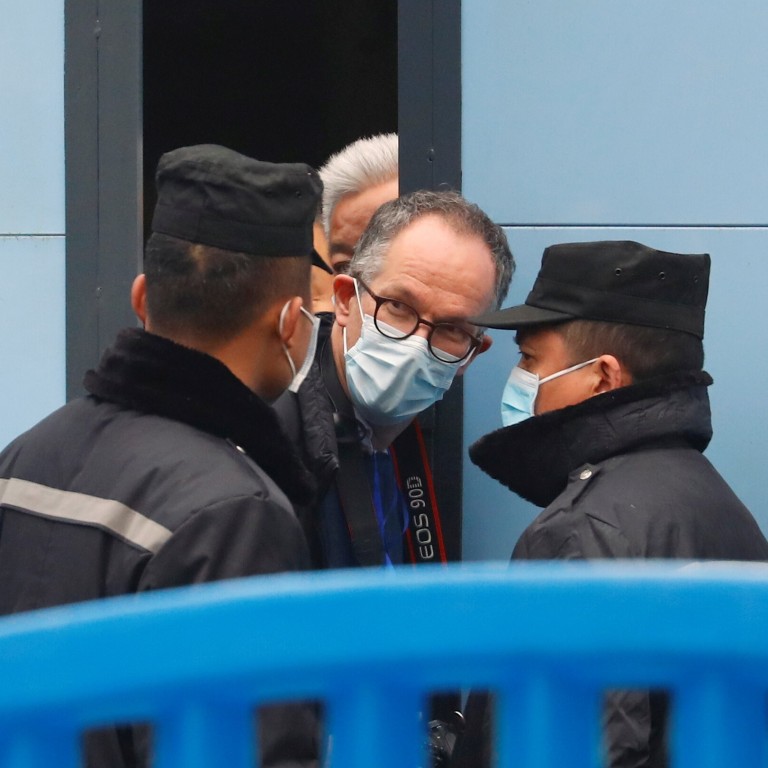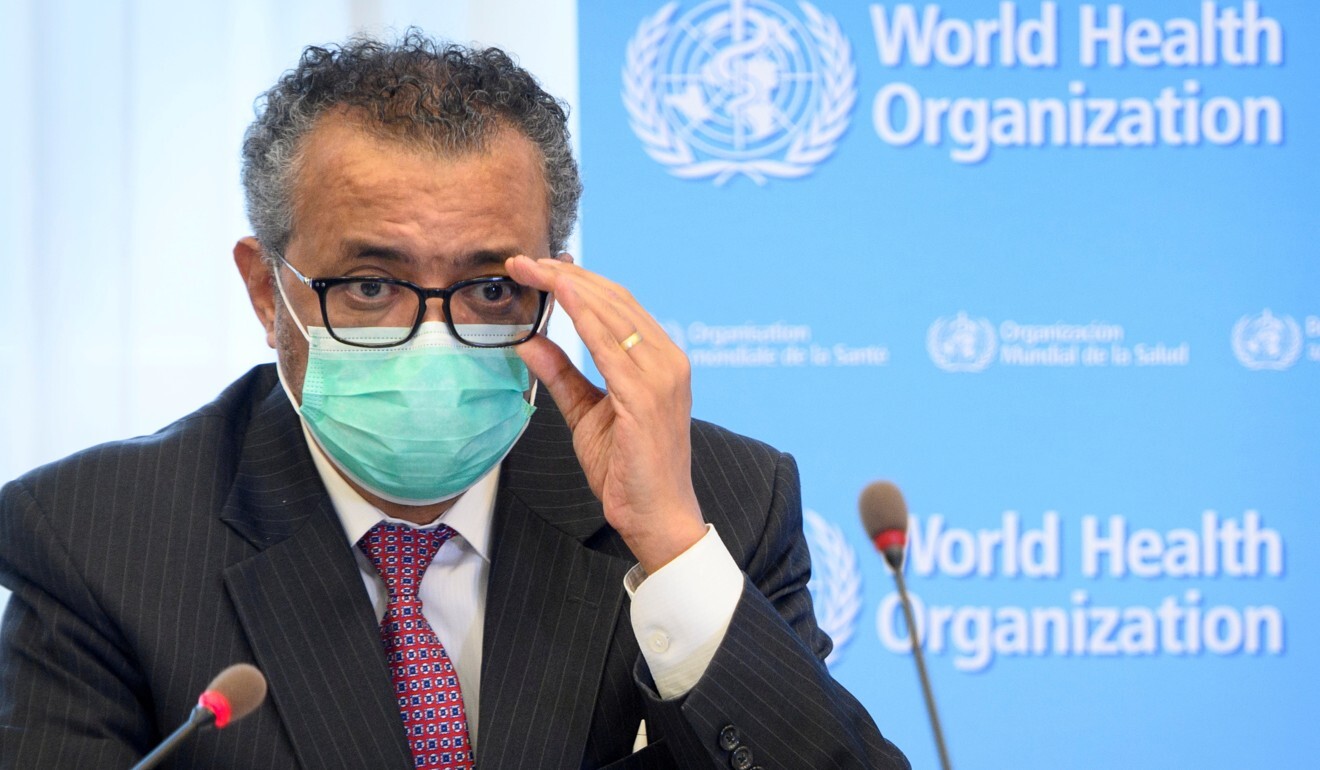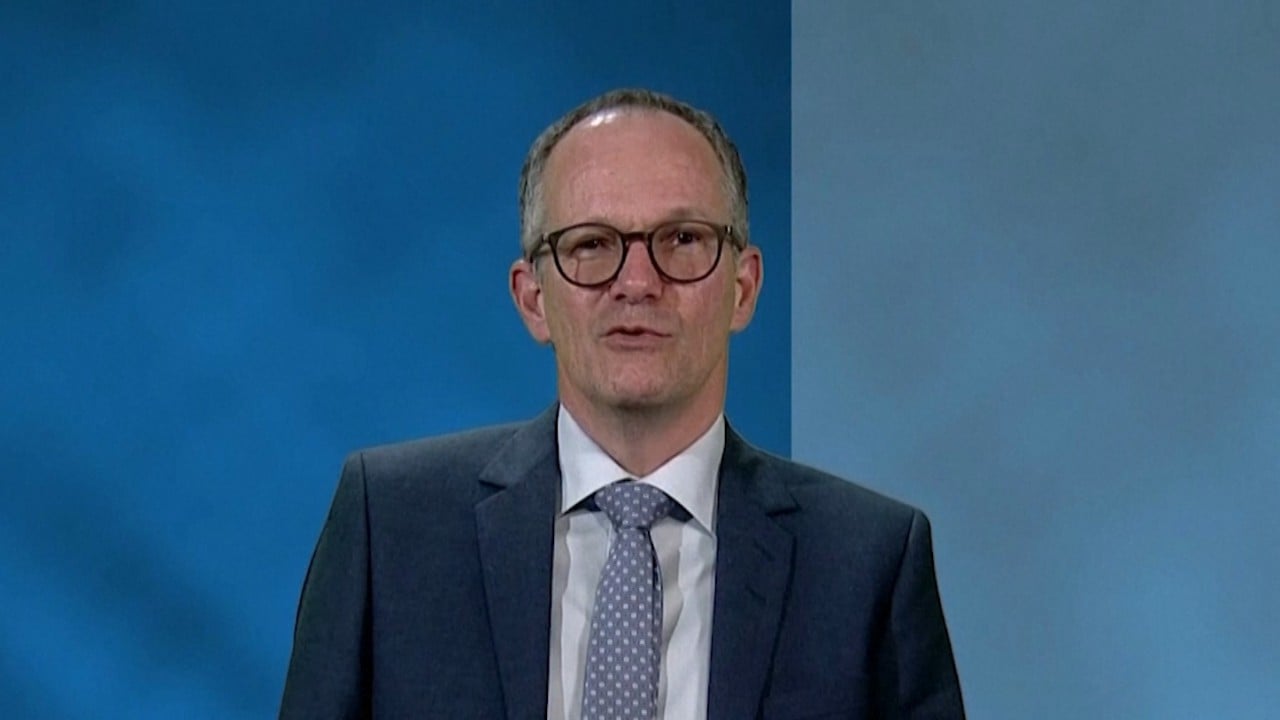
China reviewing WHO proposal for new study into coronavirus origins including lab audits
- Foreign ministry says further research on ‘global origins tracing’ needs to be decided through consensus and should not be politicised
- It comes after UN body’s chief called on Beijing to be ‘transparent, open and cooperate’ especially on raw data from early days of pandemic
Foreign ministry spokesman Zhao Lijian on Friday said the proposal was being considered by Chinese experts and that further research on “global origins tracing” needed to be decided through consensus.
“Tracing the origins is a scientific issue. All parties should respect the opinion of the scientists and refrain from politicising the origin tracing,” Zhao said in response to a question at a regular briefing.
“Now we have designed the second phase of the study, and we are asking China to be transparent, open and cooperate, especially on the information, raw data that we ask for on the early days of the pandemic,” Tedros said.

The WHO proposal includes five areas of further inquiry, according to a statement from Tedros on Friday, and leaves the door open for research both in China and elsewhere – as was recommended in the phase one report. It includes research into: humans, animals and environments involved in wildlife farming and trade; animal markets in and around Wuhan; areas with the earliest signs of circulation of the virus or where related viruses have been found in animals; and additional genetic tracing and analysis. The proposal also calls for “audits of relevant laboratories and research institutions operating in the area of the initial human cases identified in December 2019”.
The WHO said it had shared its proposal for the phase two study with member states earlier this week.
Pressure for the WHO to continue its origins inquiry has ratcheted up in recent weeks, with Group of Seven leaders, among others, calling for the work to continue following the controversial conclusion of the phase one mission in February.
Seventeen international scientists took part in the four-week field mission to the Chinese city of Wuhan, where the virus was first identified. Their findings, based on a review of research from Chinese scientists, have been criticised by a number of countries including the US, Britain, Japan and South Korea, over concerns about data transparency.
Beijing has defended its record of data sharing, with Zhao on Friday saying it was not possible for some data to be copied or leave China as it involved personal information, according to Reuters.

01:33
WHO mission leader on ‘political pressure’, difficulty accessing data during Wuhan origin study
Officials have also repeatedly said that the “China part” of the study was over and work needed to continue elsewhere – a sentiment apparently at odds with Tedros’ call for more data from China.
Health governance expert Jaemin Lee, a professor of law at Seoul National University, said that “given the importance and sensitivity of the [phase two] proposal”, the WHO was likely to have already run its details by major member countries prior to sending out the proposal.
“Of course, prior consultations or preparation may not guarantee that all members agree or that there is no objection to the proposal, but they may have indicated to the director general that a critical mass has been obtained to move ahead with the proposal,” he said.
Coronavirus: scientists again say there’s no evidence for lab leak theory
Other experts said there could still be significant hurdles to get to an acceptable plan of work – key among them the need for consensus from China.
“Without China’s full cooperation, it is unlikely that the second phase can commence,” said Nicholas Thomas, a health security expert and associate professor at City University of Hong Kong.
“This would suggest that either compromises are going to have to be made or the second phase will be blocked. Given China’s behaviour to date, it is unlikely that the WHO will be able to get everything it wants for the study to fully go ahead,” he said.
One issue at the heart of the contention is the theory that the coronavirus could have escaped from a Wuhan laboratory studying similar viruses. The theory has been rejected as “absurd” by China, and the WHO team during the phase one mission found it to be “extremely unlikely”.
But Tedros on Thursday underlined his stance that the theory was prematurely ruled out and would need to be further explored, noting that in his experience “lab accidents happen … it’s common”.

05:08
Nature or lab leak? Why tracing the origin of Covid-19 matters
“Tedros is responding to very clear guidance from the US administration, but also others, that more needs to be done, and that for the WHO’s own legitimacy it needs to show that it supports a more robust investigation,” she said, noting that the next step could be turning the proposal into a “terms of reference” laying out a concrete plan for further research.
However, the WHO “could be willing to walk away if they can’t get it right this time”, she said of negotiations for access with China.
Now for the big Covid-19 test: how well do vaccines work in the real world?
But allowing for research to take place in China without it happening in other parts of the world, including the US, may be a deal breaker for China, according to Alfred Wu, an associate professor with the Lee Kuan Yew School of Public Policy at the National University of Singapore.
“Many Chinese believe that the virus came from the United States, so unless WHO goes to the United States to have an investigation, the Chinese side will not be satisfied,” Wu said. “So it looks like a true deadlock.”
In comments on Thursday, WHO health emergencies programme director Mike Ryan indicated that further research would involve additional scientists, and the WHO would seek to build a “more formal and standardised and collective approach to origin studies”.

